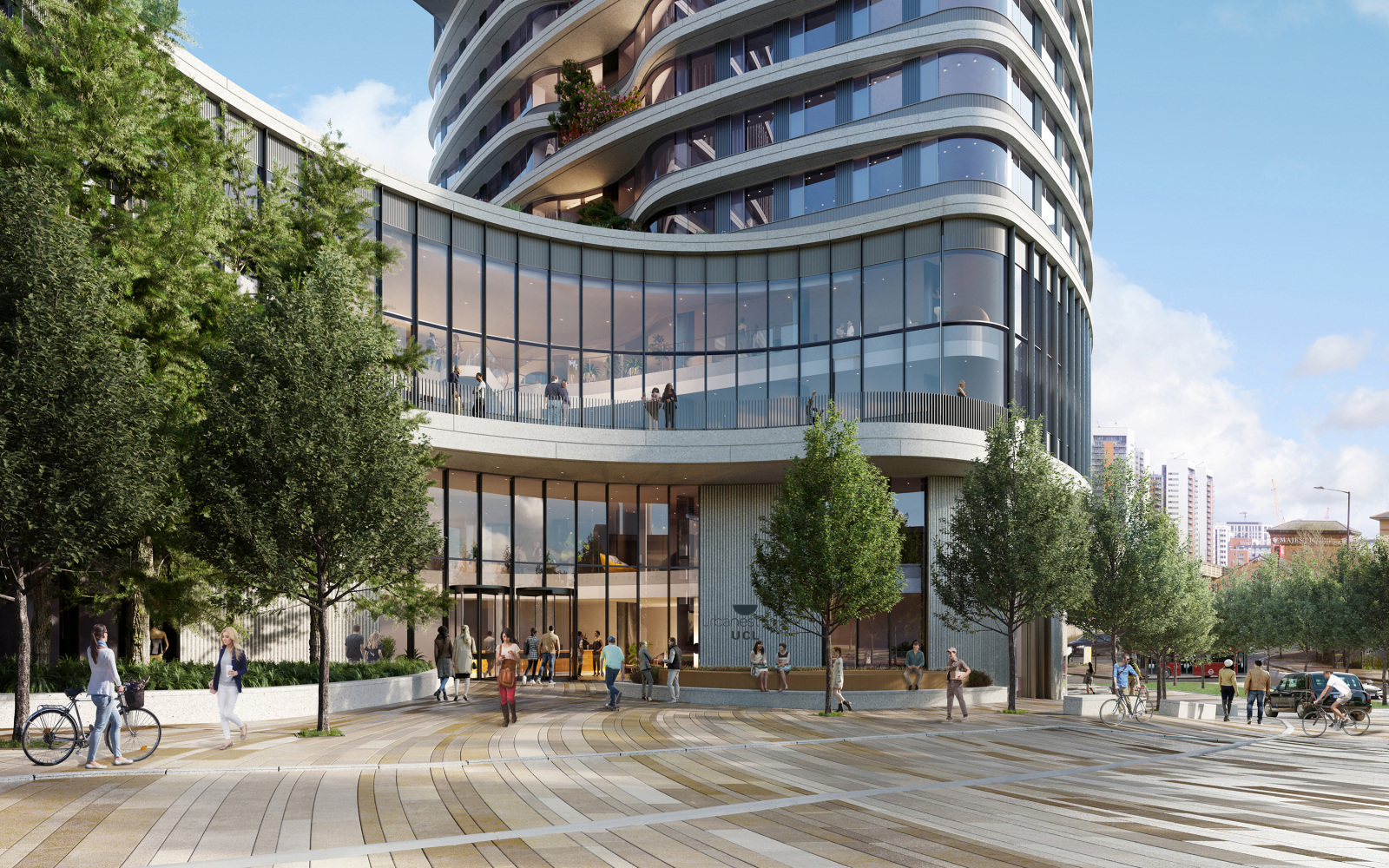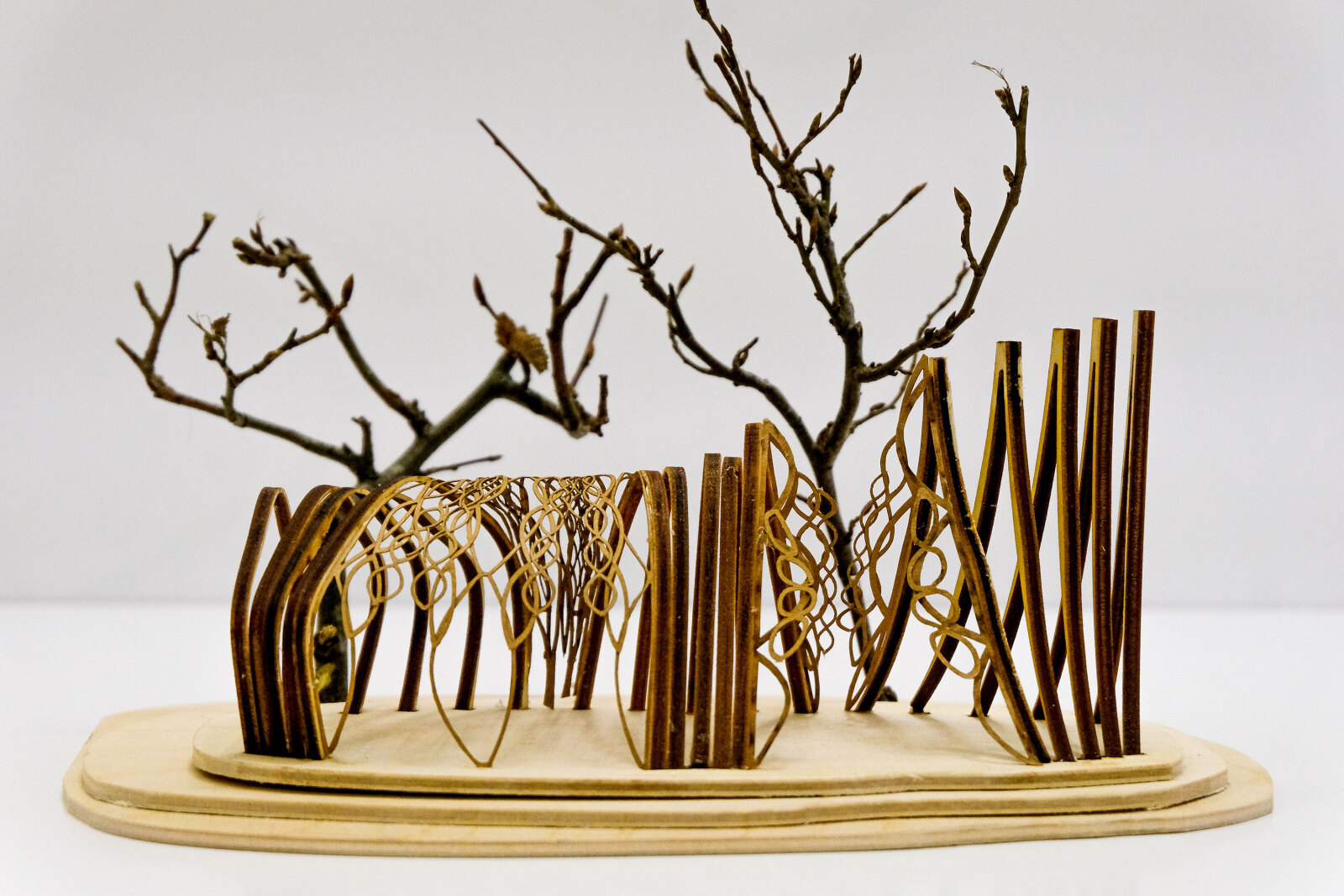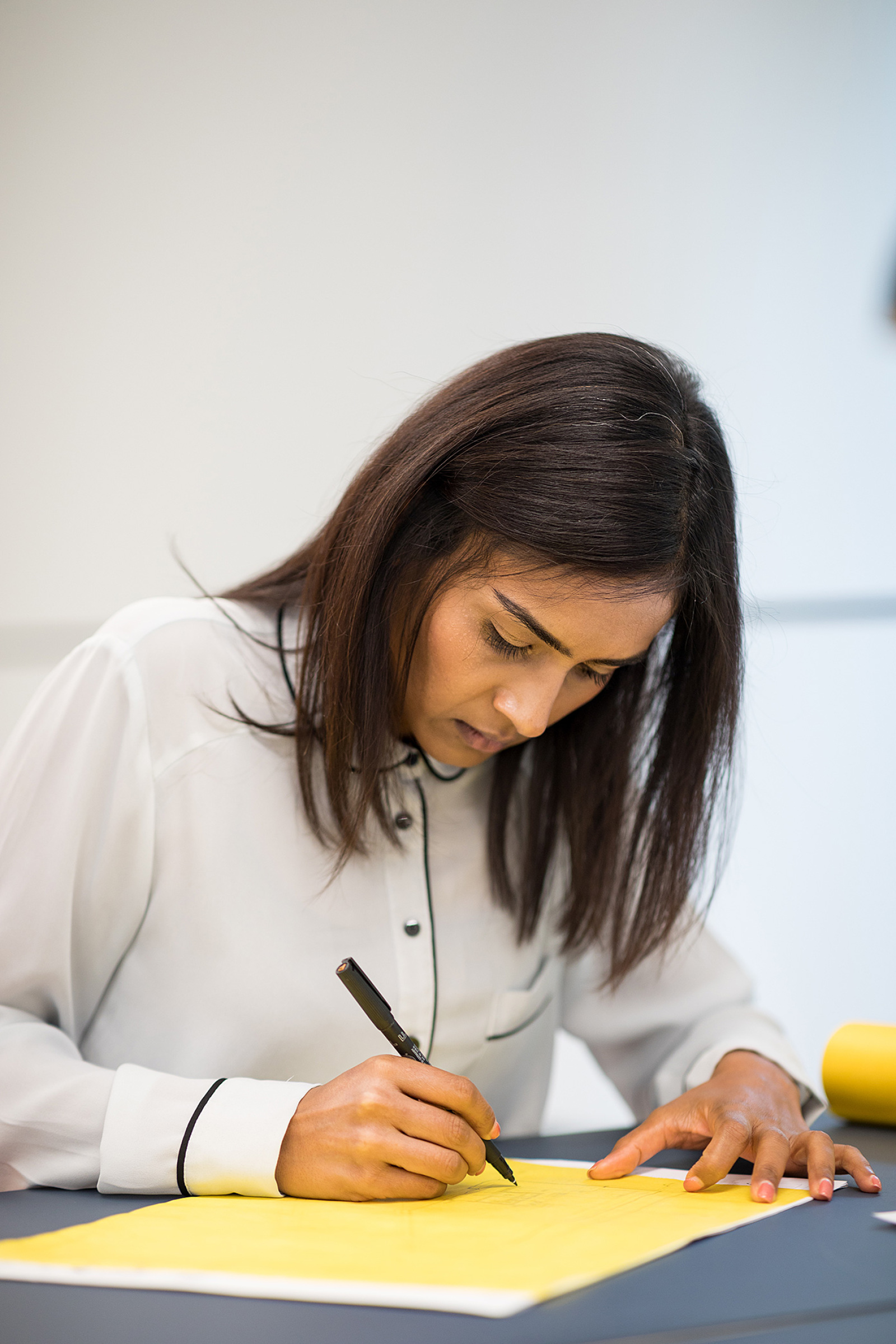
What was your first job in the industry?
I had been studying in Portugal and I was keen for some international experience - Hamiltons Architects offered an internship in London for two months whilst I was training which was a great opportunity, I really enjoyed my time there.
What inspired you to go into architecture and what inspires you outside of architecture?
As a child I always loved creating things and crafting. I have also been fortunate enough to travel and see different cities since a young age, and I've now lived in three countries. I try to visit a country I’ve never been to at least once a year as I like to understand different cultures and different societies and how that impacts the design of cities and the people that live in them. All of these factors definitely inspired me to become an architect and I always come back from my travels full of ideas. Outside of work I like to practice yoga which is very much my "me time". It allows me to switch off completely.
I would say, consider your career choices carefully! Although architecture is a very creative job, it's definitely not a nine-to-five and requires a lot of sacrifice and dedication. It lies somewhere between being an artist and an engineer. I feel it’s important to have quiet time to be creative and sketch, especially at concept stage, but there’s a whole range of things you have to do as an architect, such as attend meetings, which doesn't allow for that. Often that creative time comes outside the nine-to-five. For you to be able to do that requires a lot of dedication and you really have to have passion to keep you going.
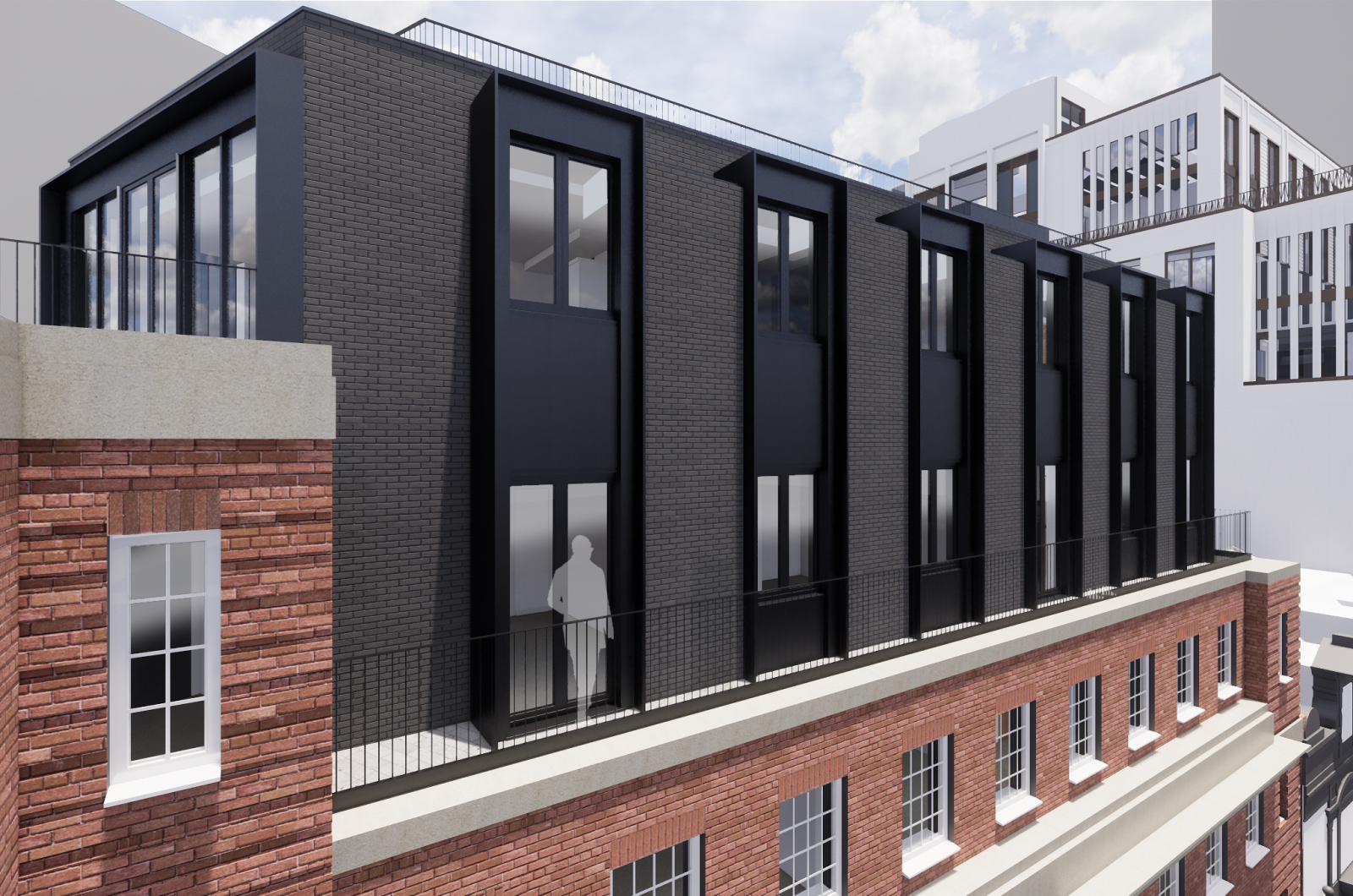
Medius House Concept
What do you think are some of the factors that contribute to creating a successful and creative working environment?
People are the heart of a company, but it's also down to communication. It's very important in our industry to have good communication, to share knowledge and lessons learnt along the way. Even if something unsatisfactory has happened, I think it's vital to communicate that because you learn from your mistakes.
You have been responsible for working on several of the practice’s largest and most complex projects, but they haven’t always made it ‘off the drawing board’. Is this wasted creative energy, or as architects, what do we learn from these experiences?
I don't think it is ever wasted energy. I have learnt a lot from these projects, and this knowledge can then be shared across the practice and applied to other projects. Whilst working on the London Resort masterplan, we had to prepare a Development Consent Order (DCO), this process was completely different than a traditional planning application and was a first for the practice, so we didn’t have any previous projects to refer back to. We worked alongside a multi-disciplinary team to write what effectively was going to become the equivalent of Planning Policy and this was a huge learning process. We have since been able to use this experience within the studio on another masterplan which has made the whole process much simple and more efficient.
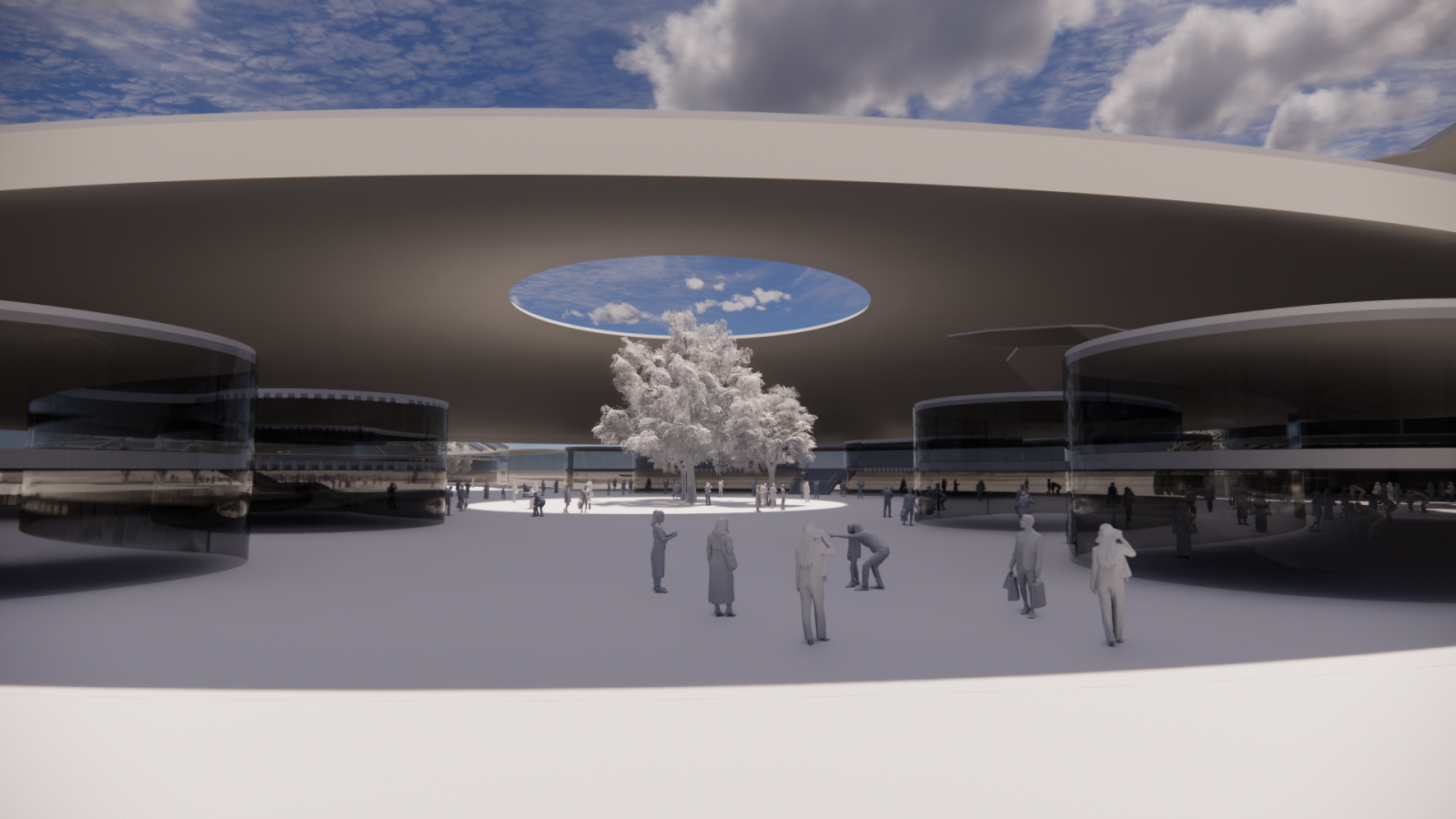
London Resort early development
Yes and no. There have been times working on projects with unclear briefs, where expectations constantly change and no progress even through to planning is made – this can be frustrating as there is no real progression which can also lead to slower professional growth during periods like that. However, when working on projects like London Resort, which may never get off the drawing board, we learn a lot, and this allows us to grow. We achieved a huge milestone by submitting the London Resort application and for it be accepted by the Secretary of State, which was very positive.
When it didn't go ahead, I did question myself. Was it something we didn't do right? Was it something we should have done better? In reality it wasn’t to do with the design, our client relationship or our relationship with consultants, it was simply due to external factors that we could not control. If it had gone ahead, it would have led to more opportunities with the project progressing into the design stage, and personally my career would have potentially grown in a completely different way because it was such a huge scheme. But in architecture nothing is set in stone, and whilst it not going ahead was disappointing, what we achieved in producing and submitting that kind of application was a big learning experience for me personally and the wider studio, so in my eyes that’s a win.
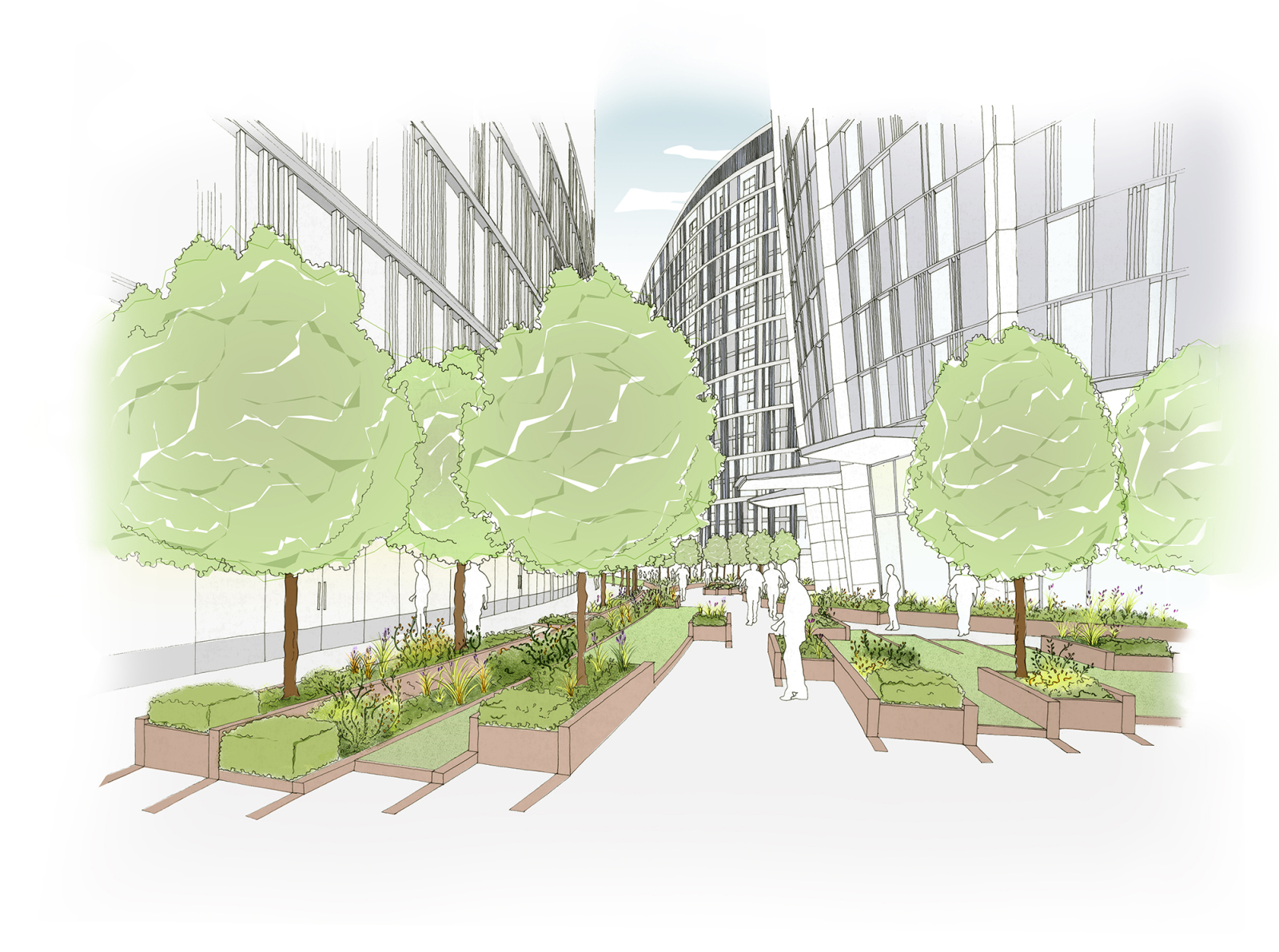
Merchant Square early concept sketch
I do try mainly to be on one project at time, but there have been occasions where I've been on two or three projects, simply because there's an overlap when doing handovers to other people. The way I manage it is very much disciplining myself by setting aside quiet and focus time. I think emails are the biggest danger and distraction, so at very busy times I will only look at emails first thing in the morning then at lunch and then at the end of the day and only reply to emails during that period. During Covid, and in the post-Covid world, if someone sends an email, they expect a response in an hour. Unfortunately, emails are sometimes not a one-liner and need greater thinking behind them.
What project are you most proud of and why?
Two projects. One was the redevelopment of a square with an office building and a restaurant in Portugal. It was a project I worked on two years after qualifying. I did the entire detailed design and was then onsite. It was an elegantly crafted building with some beautiful details. The other one is London Resort. I think what we as a studio, and I personally achieved by submitting such a complex application was great.
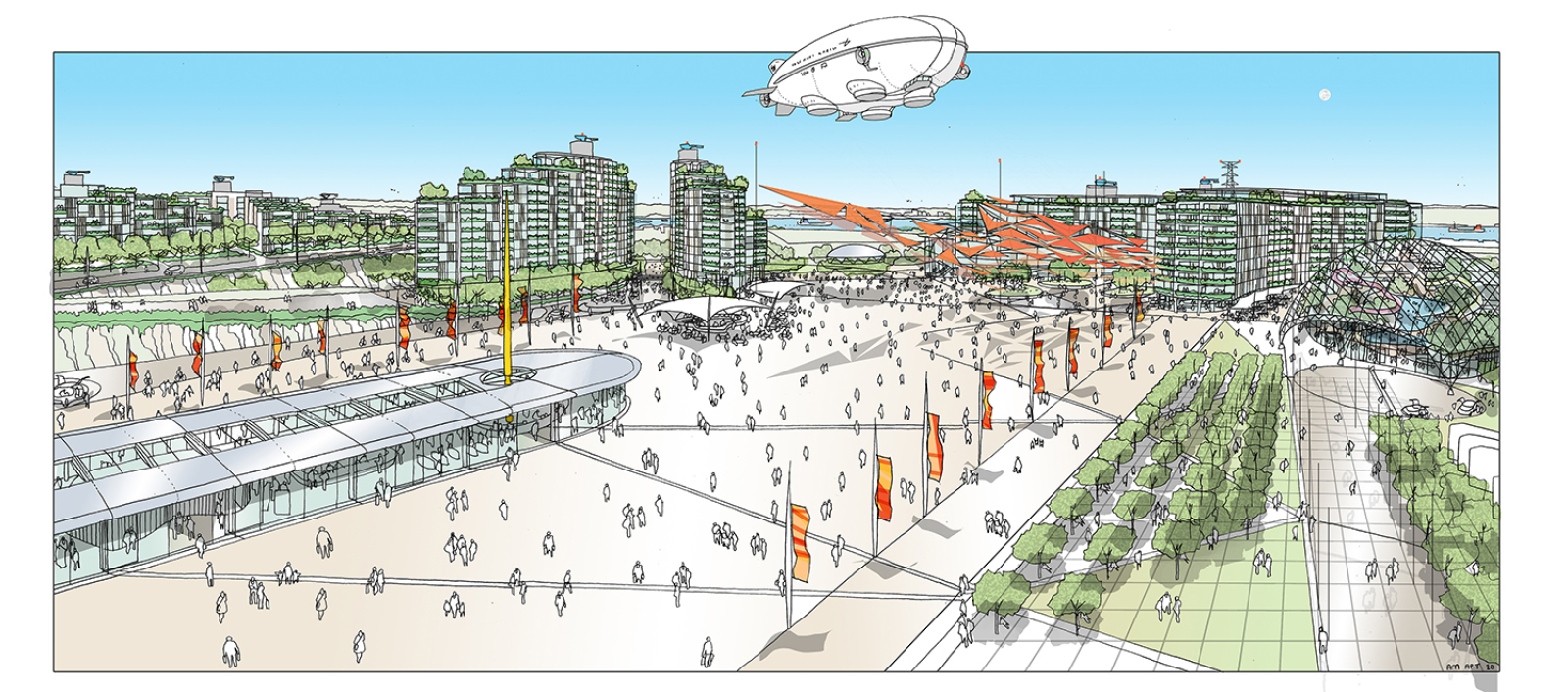
London Resort early concept sketch
I don't think I have any regrets, but when you are working on multiple things sometimes you need to make choices. When I was running London Resort, I was also working on another project called Medius House, a residential building just off Oxford Street. Due to the programme on both, I had to choose, and I chose London Resort rather than Medius. Looking back, would I change that decision? I don't think so, but if I had taken Medius it would have meant I would now be completing a building that I had been involved with since the early design phases which would have been a great experience.
What could be done to make the architecture profession more accessible?
Becoming a qualified architect is expensive, and not just because of the years it takes to become qualified. You also need materials for models, and you need to do a lot of printing. I think a shift towards apprenticeships would help. Combining work experience with education in that way would enable a reduction in the years of study. Some of the subjects you study are completely irrelevant, and you never apply what you have learned to your professional career. Learning within a studio gives you much greater exposure to the profession and the quality of learning would be better.
What do you think is the biggest challenge for the architecture profession and why?
As I see it, the biggest challenge is the extra hours we have to put in and I think it's time as an industry for us to start educating our clients about this. I think as an industry we struggle to say no to clients, even when the demands can only be met by working long hours. It is a competitive industry, and the fear of losing work means that if a client calls you on a Friday morning and needs something done by Friday evening, we feel we are not able to refuse. It's an industry-wide problem and I think the professional organisations need to be much stronger and vocal about protecting chartered practices and qualified professionals.






